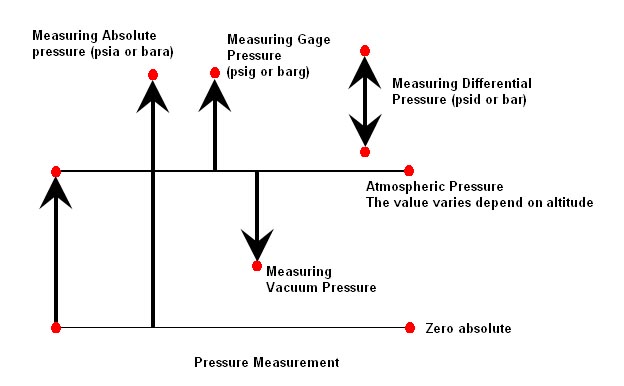Pressure is a type of stress which is exerted uniformly in all directions over a given area and defined as the ratio of the magnitude of the normal force F to the area A, or simply said it is a force exerted over a surface.
Unit of Pressure Measurement (Psig vs psi vs psia vs psid)
Mostly used unit:
SI: bar, kPa, Pa
British: psi, inH2O
Pressure is measured in various reference points. Appropriate Suffix (“g” for gauge, “a” for absolute, or “d” for differential) shall append the unit of measurement to avoid error. The following is description which distinguish among the reference points:
Absolute pressure
This a pressure which is measured with reference to absolute zero.
Atmospheric pressure
Atmospheric pressure is pressure produced by the weight of air above a surface in the Earth ambient atmosphere. Atmospheric pressure depends on location altitude.
The higher elevation from sea level, the lower atmospheric pressure in that location.
Gauge Pressure vs Vacuum pressure’
Gauge pressure and vacuum pressure are the pressure measured relative to the ambient or atmospheric pressure.
The term Gauge pressure expresses a condition where the measured pressure is above ambient pressure. In opposite, Vacuum is a condition where the measured pressure is below ambient.
Differential pressure
This is to express the pressure difference of two separate points
To clearly understand the definition of each, see below picture:
